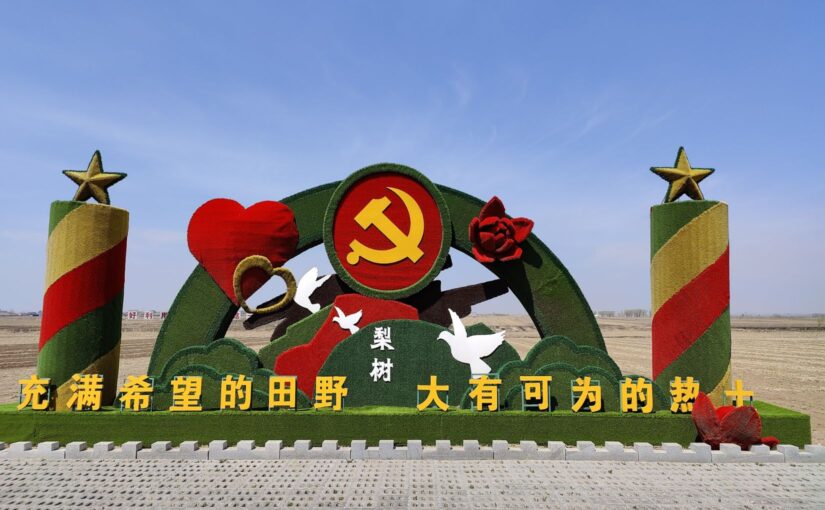The following article by Ali Al-Assam explores the issue of cooperatives in China, drawing on insights from the recent Friends of Socialist China delegation.
Ali – who is Managing Director of the NewsSocial Cooperative, as well as being a lifelong activist in the communist, anti-imperialist and progressive movements in both Britain and Iraq – describes the delegates’ visit to the Lu Wei Agricultural Machinery Farmers’ Professional Cooperative in Jilin, “a voluntary collective that now oversees 667 hectares, commanding 90 percent of the village’s farmable area.” Ali observes that the cooperative has allowed for greater mechanisation of agriculture, and has led to a 20 percent increase in income for participating families. The cooperative runs in a highly democratic manner, with profit-sharing decided collectively and major decisions made at general meetings. Ali observes that the cooperative “embodies a microcosm of efficiency, offering end-to-end services from ploughing to grain processing.”
The Chinese government is encouraging such cooperatives by providing subsidies for the purchase of agricultural machinery. The number of agricultural cooperatives is on the rise in China, and “the Chinese leadership has made exceptional efforts to nurture these cooperatives, advocating for the adoption of cutting-edge technology and sustainable farming practices… President Xi Jinping has underscored the significance of steering small-scale farmers towards modern agriculture to safeguard food security, a move he deems foundational for the nation’s modern socialist aspirations.”
This article was first published in English on NewsSocial and in Arabic on Mushtarek.
During my recent visit to China from April 14th to 24th, 2024, I had the opportunity to engage with seasoned members of the cooperative movement, among whom were British nationals who live in China. A highlight of my trip was spending a substantial part of a day, together with colleagues from ‘Friends of Socialist China’, exploring an agricultural cooperative in the north-eastern Jilin province.
The law on Specialised Farmer Cooperatives was passed by the National People’s Congress, coming into effect on July 1 2007. As stated by Tim Zachernuk In his excellent study of cooperatives in China: “The law acknowledges international cooperative experience as codified in the cooperative principles formulated by the International Cooperative Alliance. The law states that cooperatives are independent and autonomous organisations, should be democratically managed, and that their primary aim is to serve the interests of their members. There are no contradictions between the ICA principles and the Chinese law. A cooperative adhering to ICA principles would be perfectly legitimate under the cooperative law.” Tim Zachernuk pointed to some difficulties in applying the law which seems to have been resolved to some degree since 2015.
The Chinese government, particularly since 2020, has increasingly championed the cooperative model as an engine for employment enhancement, income growth for workers, and the stabilisation of rural and urban economies. These initiatives often dovetail with broader reforms aimed at reforming both privately owned and state-owned enterprises and bolstering employee ownership and governance participation.
China’s cooperative landscape is experiencing robust growth and enjoying strong government support. This growth is not only vast but also offers a multitude of learning and partnership opportunities. A notable advancement likely to further solidify democratic practices within cooperatives is the enactment of the Revised Company Law, set to take effect on July 1, 2024. This law is pioneering at the national level in that it establishes the employee representative assembly as the fundamental mechanism of corporate governance. For an in-depth understanding, refer to Dr. Guank Li’s comprehensive analysis of the law.
Insights into China’s Cooperative Landscape
The latest data offers a snapshot of the scope and impact of cooperatives across China:
Continue reading Cooperatives in China: current status and prospects for significant growth


